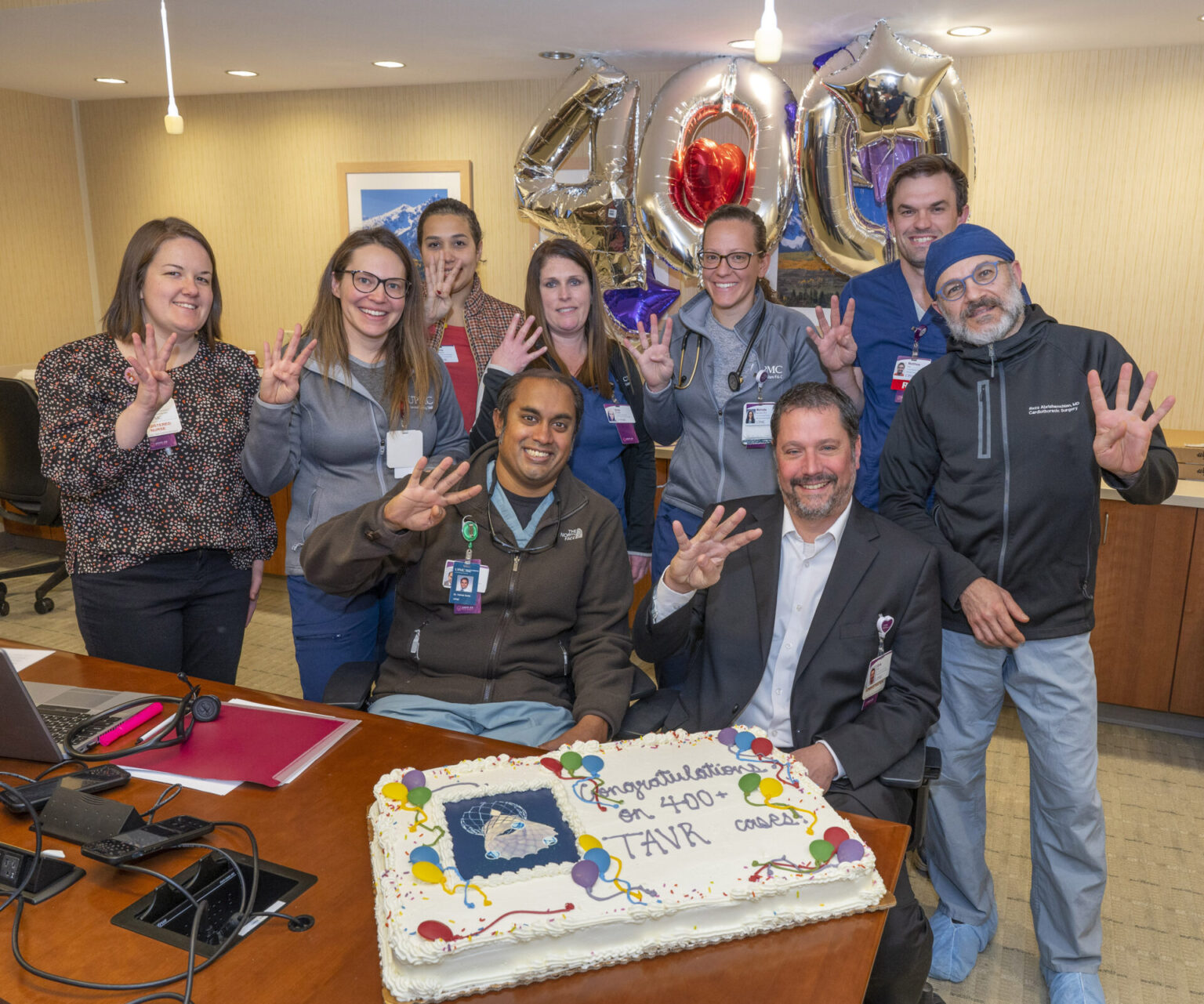HARRISBURG- Surgeons and interventional cardiologists at the UPMC Heart and Vascular Institute in Central Pa. recently performed their 400th transcatheter aortic valve replacement (TAVR) for 2023, making them the first heart program in Pennsylvania to reach this clinical milestone.
“The ability to reach this high volume of TAVR procedures in just one year, averaging one a day, is a testament to the world-class skills, expertise, and resources that this team possesses.,” said Hemal Gada, M.D., president, UPMC Heart and Vascular Institute in Central Pa. “This isn’t merely a number to us, but it is the many positive “life-changing” opportunities we’re able to create for our patients and their families – and the fact that we’re able to do it right here in central Pennsylvania makes us immensely proud of this incredible team.”
Since the start of the program in 2011, physicians in UPMC Heart and Vascular Institute in Central Pa. have performed more than 2700 procedures.
The minimally invasive TAVR procedure is used to treat patients with aortic stenosis, a narrowing of the heart’s aortic valve that can lead to debilitating symptoms, such as shortness of breath, lightheadedness and fatigue or shortened lifespan. When the valve narrows, it does not open or close properly, making the heart work harder to pump blood throughout the body. Eventually, this causes the heart to weaken and function poorly, which may lead to heart failure and increased risk for sudden cardiac death.
During the procedure, an artificial valve is implanted through a catheter, which is inserted through a large artery in the patient’s leg or chest, eliminating the need for open-heart surgery.























